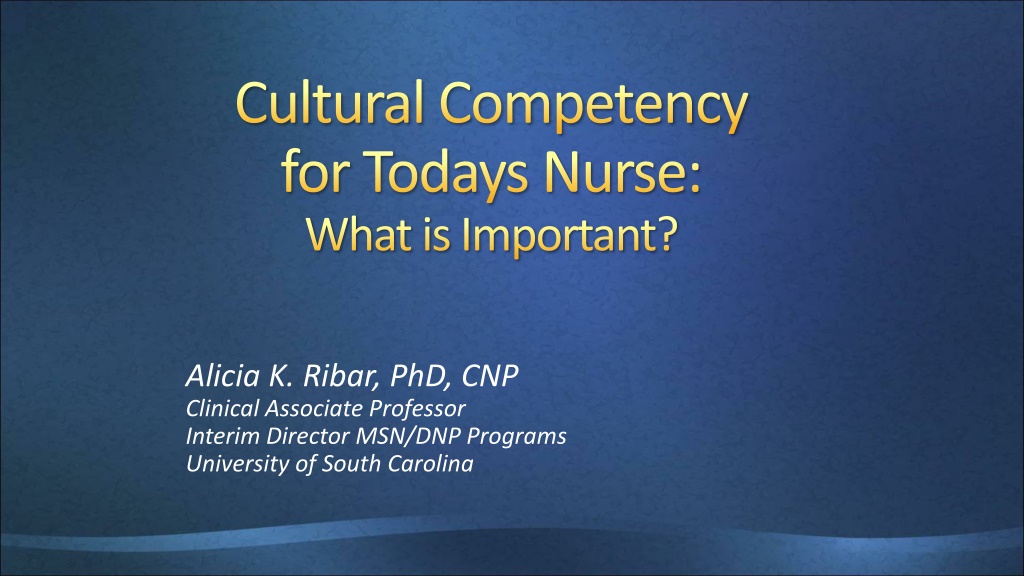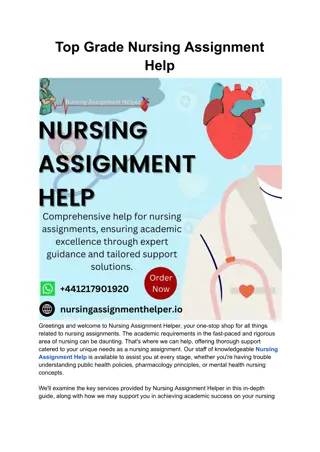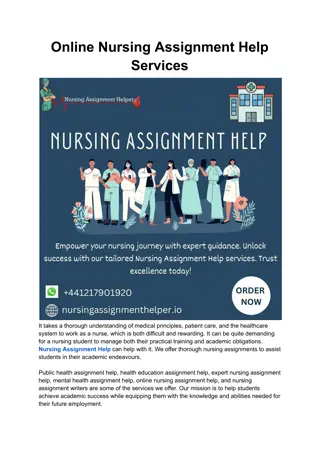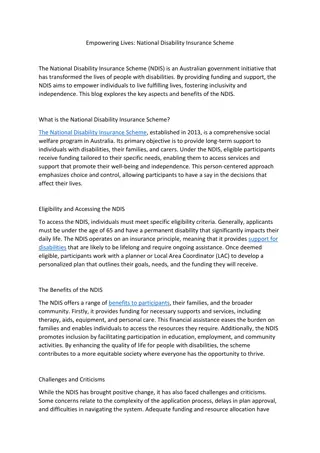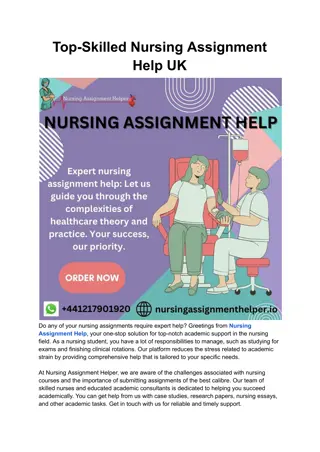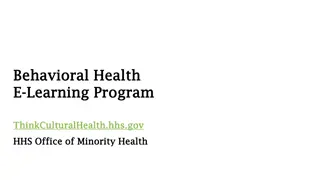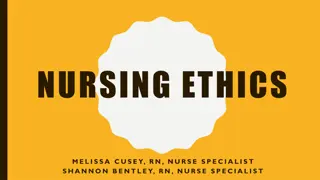Cultural Competency in Nursing Today
Explore the importance of cultural competency for nurses today, encompassing the definition of culture, cultural competence, Leininger's Culture Care Theory, and the significance of cultural understanding in nursing. The presentation delves into the role of nurses in promoting health across diverse cultures and the impact of cultural influences on health beliefs and practices.
Download Presentation

Please find below an Image/Link to download the presentation.
The content on the website is provided AS IS for your information and personal use only. It may not be sold, licensed, or shared on other websites without obtaining consent from the author.If you encounter any issues during the download, it is possible that the publisher has removed the file from their server.
You are allowed to download the files provided on this website for personal or commercial use, subject to the condition that they are used lawfully. All files are the property of their respective owners.
The content on the website is provided AS IS for your information and personal use only. It may not be sold, licensed, or shared on other websites without obtaining consent from the author.
E N D
Presentation Transcript
Cultural Competency for Todays Nurse: What is Important? Alicia K. Ribar, PhD, CNP Clinical Associate Professor Interim Director MSN/DNP Programs University of South Carolina
Interactive Feedback I know we all hate it but maybe it will wake us up?
What is Culture? Culture refers to the cumulative deposit of knowledge, experience, beliefs, values, attitudes, meanings, hierarchies, religion, notions of time, roles, spatial relations, concepts of the universe, and material objects and possessions acquired by a group of people in the course of generations through individual and group striving. WOW RIGHT?!?!?!
What is Cultural Competence? Cultural competence involves understanding and appropriately responding to the unique combination of cultural variables including ability, age, beliefs, ethnicity, experience, gender, gender identity, linguistic background, national origin, race, religion, sexual orientation, and socioeconomic status that the professional and client/patient bring to interactions.
Purpose This presentation is a summary of three larger studies that investigated the role of the nurse in promoting healthy eating, health norms and health beliefs across cultures. The purpose was to understand the meaning and cultural influences on health.
Rationale Ones cultures gives them a unique perspective and understanding of the meaning of health and how they perceive health delivery.
Leininger'sCulture Care Theory The intent of the care is to fit with or have beneficial meaning and health outcomes for people of different or similar culture backgrounds. Care knowledge and skill are often repatterned for the best interest of the clients.
Significance for Nursing To provide a personal perspective of what it means and the held beliefs of health across cultures. Provides a basis for care that is pertinent and valued within the population.
Questions for Thought? What are the cultural influences of health perceptions? What does health mean to each person individually and as a group? How do our own cultural beliefs affect our delivery of care?
Themes Health is typically framed in the context of culture. Culture is central to family and celebration. Health and care are typically valued when delivery is given in or by a trusted individual or entity.
Take Away Point Trust nurses are some of the most trusted professionals in healthcare today. Establishing a trusting environment for our patients imporves health outcomes. None of this is new but a reaffirmation of knowledge that is inherent in all nurse.
Implications Theory supports recent trends for improving cultural competence in healthcare. Education & Practice opportunities for culturally congruent applications. Policy- opportunity to improve alignment of education policies and educational efforts.
References Centers of Disease Control and Prevention. (2016). Basics about childhood obesity. Retrieved: http://www.cdc.gov/obesity/childhood/basics.html Freedman, M.J., & Stern, J.S. (2004). The role of optimal healing environments in the management of childhood obesity. Journal of Alternative and Complementary Medicine, 10, 231-244. Health Policy Tracking Service. (2008). Innovative health practices in schools. Health Promotion, 22, 223-228. Hessler, K., & Siegrist, M. (2012). Nurse Practitioner attitudes and treatment practices for childhood overweight: How do rural and urban practitioners differ? Journal of the American Academy of Nurse Practitioners, 24, 97-106. Larson, L., Mandleco, B., Williams, M., & Tiedeman, M. (2006). Childhood obesity: Prevention practices for nurse practitioners. Journal of the American Academy of Nurse Practitioners, 18, 70-79. Purnell, L. (2016). Are we really measuring cultural competence? Nursing Science Quarterly, 29(2), 124 -127.
Thank You Questions and Discussion
